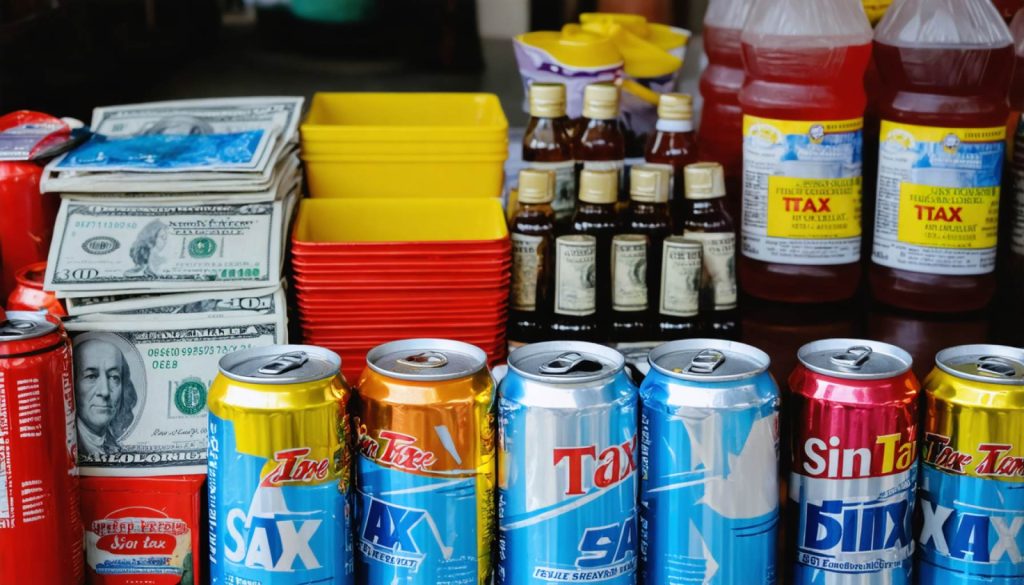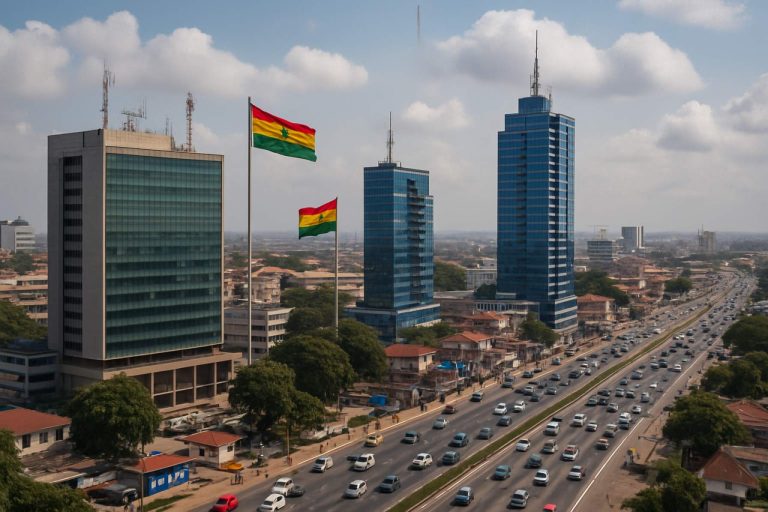
- Sin tax in Zimbabwe targets harmful goods like alcohol and tobacco, influencing economy and societal habits.
- This tax raises prices, aiming to curb consumption and generate government revenue for public health and infrastructure projects.
- The tax aids in reducing smoking rates, potentially lowering cases of smoking-related diseases, and reshaping social gatherings toward healthier alternatives.
- Sin tax’s impact is mixed; it burdens lower-income citizens while promoting public health initiatives and encouraging healthier lifestyle choices.
- Challenges include enforcement in rural areas, where informal trade diminishes the tax’s effectiveness.
- Overall, the sin tax serves as a transformative tool in Zimbabwe’s economic reform, nudging citizens toward sustainable and healthier futures.
In the bustling markets of Harare, where the vibrant colors of fresh produce clash with the metallic clangs of artisanal crafts, a new player asserts its influence—sin tax. This levy, firmly placed on goods deemed harmful like alcohol and tobacco, is reshaping not only the nation’s economy but also its societal habits and health landscape.
Picture this: a young man, bright-eyed yet weary from the demands of modern life, walks into a store to buy his usual bottle of beer. This simple transaction is now tinged with a new reality—the bottle costs more, thanks to the government’s efforts to curb excessive drinking. The once straightforward indulgence now requires a weightier consideration. This is the essence of sin tax, which is both reviled and praised for its dual purpose of discouraging vice and generating government revenue.
Zimbabwe, navigating the waters of economic reform, leverages sin tax as a tool for social engineering. Critics argue that it unfairly burdens lower-income citizens, for whom these taxed items might represent a rare escape from daily hardships. Yet, proponents emphasize its role in funding public health initiatives and infrastructure—critical facets in a country striving for stability.
The smoky haze of Shisha lounges in downtown Harare is thinning, a testament to the effectiveness of these taxes. Tobacco products are increasingly out of reach, forcing smokers to rethink their loyalty to the habit. Health activists rejoice as they envision a future with fewer cases of lung disease and other smoking-related ailments. Bold moves like these, while contentious, are paving the way for measurable improvements in public health statistics.
Beyond the physical health aspects, sin tax subtly redraws cultural lines. Social gatherings that once revolved around drinks and smoke morph into healthier encounters. Enterprising vendors adapt by offering non-alcoholic alternatives, creatively blending indigenous fruits into refreshing mocktails. Amidst the shifts, a new culture begins to emerge—one that holds potential for long-term wellness.
However, it’s not all smooth sailing. Enforcement challenges, particularly in rural areas where informal trade thrives, pose significant obstacles. Here, the sin tax’s grip weakens, with goods often exchanged without official oversight. The government’s ongoing struggle to bring these transactions into the legal fold highlights the complexities of implementing such broad-ranging financial policies.
As Zimbabwe continues on this path, the story unfolding is one of transformation. Sin tax, while controversial, acts as a catalyst for change—nudging citizens toward healthier lifestyles and a more sustainable future. The journey is fraught with challenges, yet the potential rewards, from improved national health to enriched public coffers, bring hope.
In essence, sin tax in Zimbabwe serves as a mirror reflecting both the economic and ethical narratives of the nation. It challenges the status quo while offering a glimpse of an alternate route, one where the price of pleasure acts as a motivator toward positive change.
In navigating these evolving landscapes, Zimbabwe illustrates the intricate dance between policy and public behavior, crafting a compelling narrative of resilience and reform. The takeaway? Sometimes, the path to progress is paved with more than good intentions—it requires bold risks and the audacity to forge new paths.
How Zimbabwe’s Sin Tax is Transforming Society: Impacts and Strategies
In the vibrant markets of Harare, Zimbabwe, a new fiscal policy is shaping the future—sin tax. By imposing levies on goods like alcohol and tobacco, Zimbabwe is not only aiming to enhance public health but also to drive economic reform. This exploration delves deeper into how sin tax influences society, the economy, and potential future paths.
Key Facts About Sin Tax in Zimbabwe
– Fiscal Impact: Sin taxes generate substantial revenue, contributing significantly to the country’s treasury. This income is often allocated to public health programs, infrastructure development, and other critical governmental functions.
– Public Health Benefits: By increasing the costs of harmful products, sin tax reduces their consumption, potentially lowering rates of alcohol-related accidents and diseases such as lung cancer. This aligns with global health strategies aiming to reduce lifestyle-related diseases.
– Economic Challenges: Critics argue that sin taxes disproportionately affect lower-income individuals, who might see these goods as an occasional escape. The additional financial burden can exacerbate economic inequality.
– Cultural Shifts: The increased cost of alcohol and tobacco is influencing social behaviors, with people increasingly turning to healthier social gatherings. This change fosters cultural innovation, with mocktails and non-traditional social activities gaining popularity.
How-To Steps & Life Hacks for Consumers
1. Budgeting Smartly: As prices rise, budgeting becomes crucial. Consumers can prioritize essential goods over luxury items affected by sin tax.
2. Exploring Alternatives: Experiment with substitutes such as herbal teas or water infusions to replace alcoholic beverages, contributing to both health and savings.
3. Healthy Social Habits: Seek activities that do not center around alcohol or tobacco. Engaging in sports, arts, or community service can be fulfilling and less costly.
Market Forecasts & Industry Trends
– Increased Demand for Non-Alcoholic Beverages: A rise in non-alcoholic drink consumption is projected, providing new opportunities for local entrepreneurs to tap into alternative beverage markets.
– Regulatory Evolution: The government is likely to refine sin tax policies to address economic disparities and improve enforcement, particularly in rural areas.
– Improved Health Outcomes: Over time, reduced consumption of sin goods is expected to enhance public health, decrease medical costs, and improve life expectancy.
Controversies & Limitations
– Enforcement Issues: In rural and informal markets, enforcement of sin taxes is challenging, often leading to non-compliance and black-market sales.
– Equity Concerns: The regressive nature of sin tax means it can disproportionately impact lower-income groups unless paired with targeted subsidies or welfare programs.
Recommendations & Tips
– Government Action: To mitigate the regressive effects, authorities could consider supplementary measures such as subsidies for essential goods or enhanced public services.
– Entrepreneurial Opportunities: Entrepreneurs can explore the burgeoning market for alcohol-free beverages or health-focused products.
– Community Engagement: Encourage community forums to discuss the benefits and drawbacks of sin tax, fostering a collective effort towards healthier choices.
For more information about policy impacts and economic reforms, visit the Zimbabwe Government website.
In summary, Zimbabwe’s sin tax marks a pivotal effort in aligning economic strategies with public health goals. As this policy unfolds, it remains critical to balance fiscal gains with social equity, ensuring that all citizens can thrive in a transforming economic landscape.



